Interview: Making Black History - Actor PHIL LAMARR: In Voice and Vision
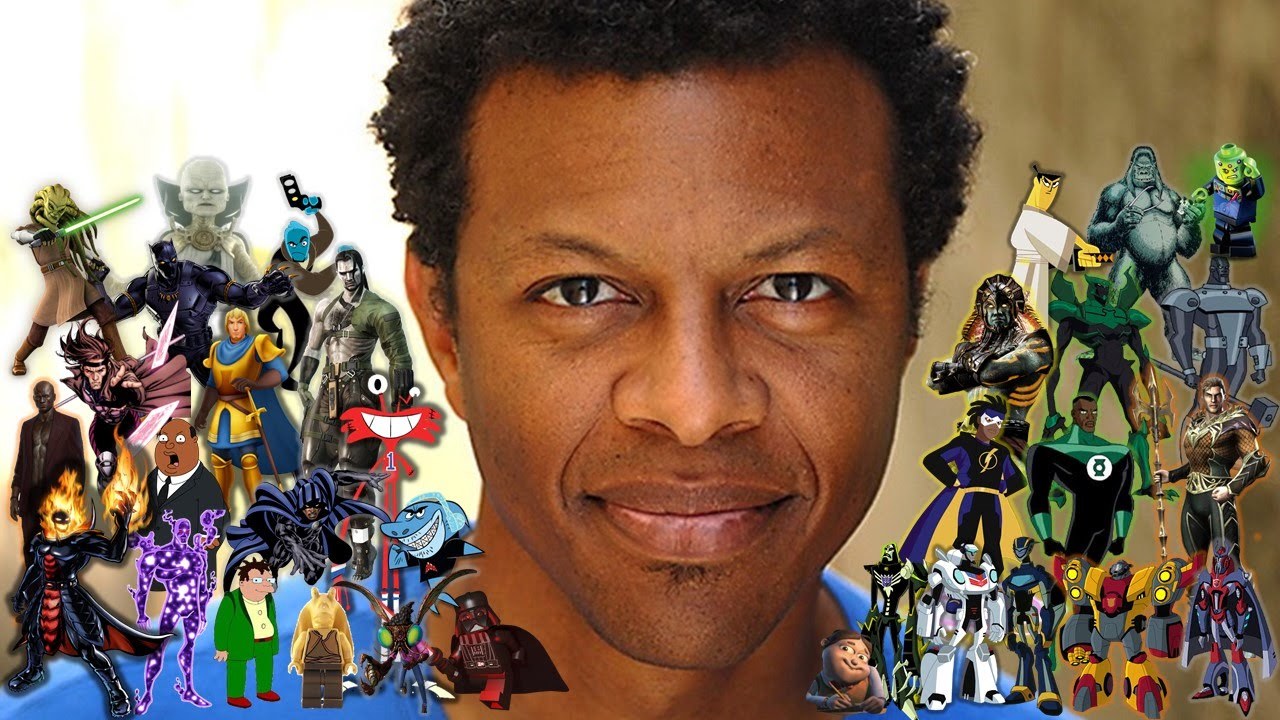 Phil LaMarr has been delivering incredibly rich characters to animation, film and the stage for the past thirty years. If you are not familiar with his name, you are sure to know his voice. LaMarr has an impressive list of success; a true testament to his talent, personality and focus. A condensed list of characters he brings to life are the main characters on "Samurai Jack" and "Static Shock." He is the voice of John Stewart/ Green Lantern on "Justice League", Hermes on "Futurama" and a few hundred more roles. He was on the original cast of MadTV, is a top of the line improvist and much more. I had the pleasure of sitting with him recently. We talked about his career and some insights toward the growing embrace diversity in sci-fi and fantasy.
Phil LaMarr has been delivering incredibly rich characters to animation, film and the stage for the past thirty years. If you are not familiar with his name, you are sure to know his voice. LaMarr has an impressive list of success; a true testament to his talent, personality and focus. A condensed list of characters he brings to life are the main characters on "Samurai Jack" and "Static Shock." He is the voice of John Stewart/ Green Lantern on "Justice League", Hermes on "Futurama" and a few hundred more roles. He was on the original cast of MadTV, is a top of the line improvist and much more. I had the pleasure of sitting with him recently. We talked about his career and some insights toward the growing embrace diversity in sci-fi and fantasy.
David Perry: Over the years there has been a general progression of roles and writers of people of color in the Science Fiction and Comic book genres. But it seems like in the past ten years there has been an explosion of these roles and opportunities of ethnic diversity. What are your thoughts on this boom in opportunities for people of color?
Phil LaMarr: " The process has been ongoing. There are two components of this boom. One is the literal boom of the sci-fi, comics and fantasy genre moving into and over taking the mainstream. At the same time, culturally acknowledging and revaluing of diversity."
DP: How have you seen this play out from when you were growing up a D&D kid in LA to today's media landscape?
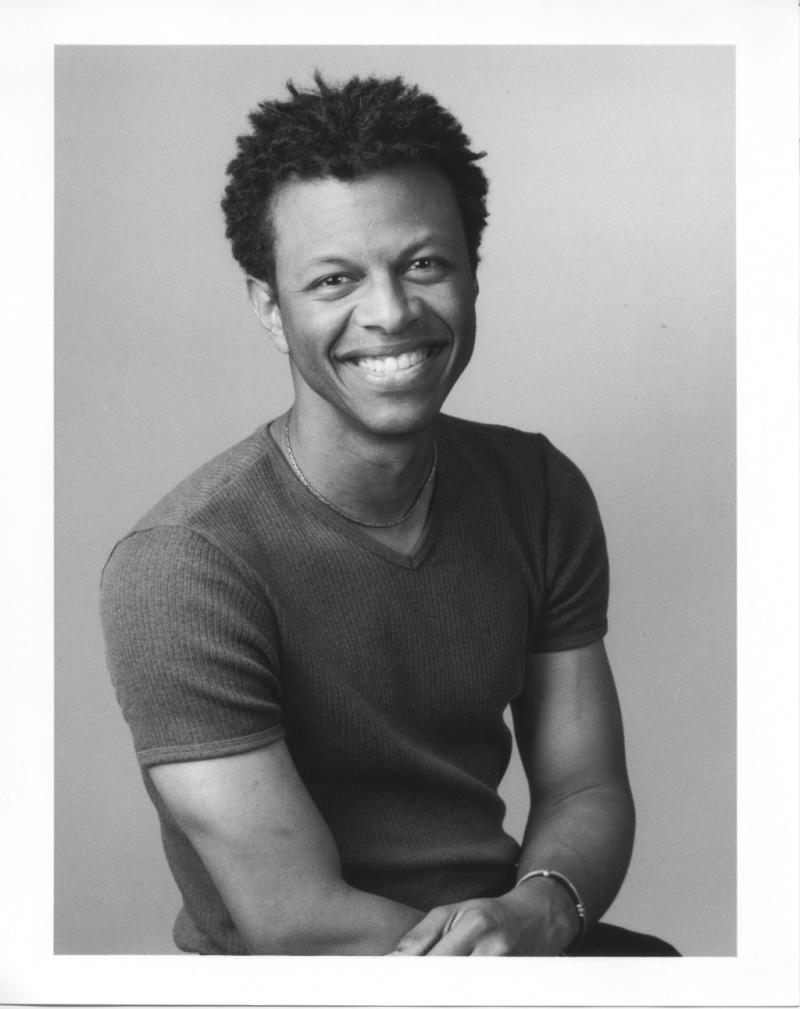 PL : "In the very beginning I was being sent out for gang member roles. That to me is a significant marker. I mean if you look at me, why the hell am I auditioning to play a gang member? Anyone who is willing to cast me as a gang member does not have a sense of black folks. They are casting someone according to a color strip. That's part of what has changed. People are widening their view. In the late 80's, people were beginning to understand that on a TV show, if you had a group of folks, they couldn't all just be white. It looked strange. You had Eriq La Salle on NBC's "ER". If you look at that by today's standards, it like what so significant about that? He was a surgeon. For him to have that kind of status in that grouping was significant. It was unusual at that time. Now it has gotten to the point that any group with more than four people, has to have a person of color. Otherwise it's weird. You can't do "Friends" anymore.
PL : "In the very beginning I was being sent out for gang member roles. That to me is a significant marker. I mean if you look at me, why the hell am I auditioning to play a gang member? Anyone who is willing to cast me as a gang member does not have a sense of black folks. They are casting someone according to a color strip. That's part of what has changed. People are widening their view. In the late 80's, people were beginning to understand that on a TV show, if you had a group of folks, they couldn't all just be white. It looked strange. You had Eriq La Salle on NBC's "ER". If you look at that by today's standards, it like what so significant about that? He was a surgeon. For him to have that kind of status in that grouping was significant. It was unusual at that time. Now it has gotten to the point that any group with more than four people, has to have a person of color. Otherwise it's weird. You can't do "Friends" anymore.
DP : That's true. Today's audiences have been inundated with so much flavor that their palate notices when something does not taste right.
PL : "You know its funny. The old thinking was if a role was a person of color, the writers would ask why. "Why is that a black guy? Why is it a Chinese guy?" Now, if a cast is all white, people ask why. "Why are they all white? Is that a thing? Are they aliens from another planet where everyone is that color?"
DP : "Is this some kind of a historical or period piece?"
PL : "Right. There has to be a reason for that. It's funny. That's based on the assumptions that people are going in with. "Every once and awhile you get a creator who pushes the envelope. I was fortunate enough to be involved with "Justice League." This was before diversity was a buzzword. But director Bruce Timm simply had a vision and it was "I don't want to do a show where seven white people save the universe every week." It made sense to him. It wasn't a political thing. Creatively, this is a more interesting story to tell. This is the world I want to show. So he chose John Steward to be THE Green Lantern, not a back up Green Lantern. In the Justice League world, he was the Green Lantern of Earth."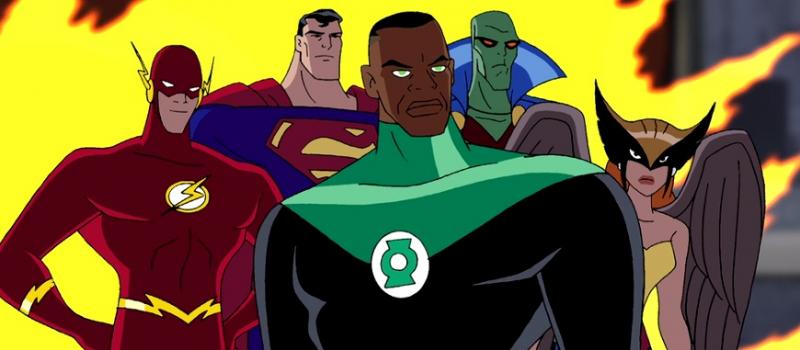
"Justice League" was smart in a lot of ways because it took elements from the comics that worked and got rid of all the rest. Which was unusual at the time, and still kinda is. This genre of entertainment is traditionally a very conservative media. Comics especially.
DP: In what way?
PL : People don't want stuff to change. (Switching into an annoyed fanboy voice) "I read it when I was five, and it should be the same. Why is the S bigger? That's not my Superman!" People get bent about that stuff. Comics moving into the mainstream has actually forced comics to be more diverse. If you just ported comic book stuff into the movies, like it was for a long time, it would be real white and real male. But that does not fly in mainstream entertainment anymore. It's like what we were just taking about. All of the sudden, comic books were now being held to the same standards. You can't just have a bunch of white guys saving the universe. As a long time comic book person and as an entertainment person, I see the shift and the change. It takes creative people at these certain points, and the set of assumptions underlying our entertainment changing."
THE POWER OF DIVERSITY AND DEVELOPING LAYERED CHARACTERS
DP: I don't want to run through the long laundry list of the work you have done cuz it would be like reading the New Testament. But in voice acting for animation, does diversity ever come into play in developing a character?
PL: "Its interesting because it does, and it doesn't. In one respect the buzzword of diversity has absolutely no place in character building because you cannot play a race. You cannot play a stereotype. All you can play is a person. But the flip side is at its core that is what diversity is all about. When you have diverse performers, diverse writers and diverse perspectives. By definition, you get multi layers and levels. You get things that are not stereotypes. Non-flat characters. You get depth of a broad perspective and to me that makes it work.
DP: What do you do if you are given writing that is flat and have to implement those kinds of layers?
PL: "As an actor, our job is to always bring it to life, to flush it out. When it's great writing that's easier. Because a lot of it is already there, you get to put some icing on top of it. Now, when its bad writing, it's "let me just dig this up out of this pit and bring it into the light so it at least visible."
DP: How does your process of developing a character flow?
PL: "First it starts with the script. What are they giving you to work with? If they are giving you a lot, it falls into what does this inspire in me? Who does this remind me of? If its just a description of a character. "He's so full of anger. He's conceited beyond belief." If it is a voice over gig I think, "What kind of voice would communicate those things. Sometimes you also have a drawing of the character. Then you can factor in physical traits that could be in the voice. In Fosters Home For Imaginary Friends I played a character named Wilt, who was super super tall and super super thin. (Casually slipping into the voice of Wilt, like a Boss) So I thought of a voice that would, sort of gives you that sense of somebody who's very tall. (Snapping back) Sometimes you go against type. (laughs) When we were doing the Grimm Adventures of Billy and Mandy, there was a character named Dracula. He was modeled after Blackula. (actor William Marshal) " But we went against type and I basically just did Redd Foxx. (Switching into the voice) "Dracula don't suck. Dracula scrapes, than licks."

PL: It's a collaborative process. The writing inspires something in you, and then you throw that out there. Then you work with the creator. Asking "what do you think about what I'm throwing down? It's a jazz combo. They sometimes come back with notes like "Oh that's great, can you play him younger." Then you add that element. The pieces all come together like a gigantic Lego piece."
DP: That sounds like a positive collaborative process.
PL: "The worst are creators who don't get acting. I remember there was one guy who insisted on giving me a line reading, over and over. But he wasn't an actor. So he could not read the line the way he heard it. You just figure this guy doesn't know, and the studio tried to save five bucks instead of hiring a real voice director. As a voice actor we depend on voice directors immensely.
DP- How so?
PL: "Because first, their job is to organize everything. Second, they communicate as the conduit between the artistic people and the actors. Because a lot of the time we are not speaking the same language. Andrea Romano was one of the best at that.
She talks to her producers and find out what need, what they want, and what their tone is. The she translates that into actor readings. She does it so efficiently
DP: I have noticed all of the DC Animated films and television shows she has worked on there is a noticeable tone in all the voice acting that is incredibly engaging. To me, that's one of the reasons why the DC Animated films are better than the features films. The characters are so well structured and the actors get it.
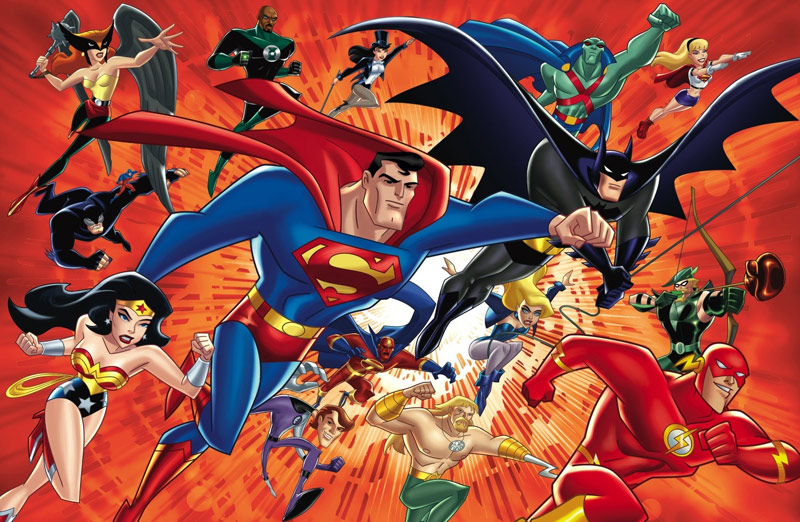
PL: "Right, and David think about this. About half the actors in those animated films that she directed are not voice actors. It is completely different style of acting. She is getting performances out of on-camera people that work in animation. Some people move flawlessly between both. J.K. Simmons or Nathan Fillion, they get it, but there are some people that don't. I have seen some people who were amazing on-camera that came into Justice League sessions and were struggling. Being a handed a script and having to read off a page, and have them record as you reading is completely different than having two weeks of rehearsal, memorizing it, blocking it, getting those words in your body. Then bringing emotion to it. It is two completely different processes. Andrea is able to fold the animation process into whatever individual actors process and give them what they need. Not everybody can do that."
THE APPROACHING WAKANDAN REVOLUTION
DP: As someone who has played the role, what are you thoughts on the Black Panther opening this weekend?
PL: I'm not worried. It's not the 90's. There was a period in time where if something like this were coming out, as a black person in entertainment you would be afraid.
DP: In what aspect?
PL: Because if it goes bad, it will be twenty years before there is another one. I think this is a different case. I think we are in a different time. Because of things like Luke Cage, this is something that we have always wanted. To have enough options that we can be great, or suck and it doesn't matter. We are not quite there yet. But there is enough now where we can have Black Panther and Tyler Perry and we are ok. There is also a level of normalization because Black Panther is not a black story; it is a story of Wakanda. Just like Thor: Ragnorok was about Asgard. My only regret is that black is still in the name. Even though it's a little different, I still get echoes of names like "Black Goliath". I mean even with "Black Lighting" cant he just be called "Lightning"
(Note: For you folks growing up after the 90's. Back in the comics of the 60's, 70's and 80's, it was a frequent occurrence for writers to add "black" to a name of any hero who was person of color. Science Fiction had fewer incidences. I guess in the future they got over doing that. One example was the original Battlestar Galactica series in the 70's. They had a talented group of actors of color performing in roles of substance and importance. Once such was the role of the starfighter pilot Boomer, played by Herbert Jefferson Jr.)
PL: I was at a convention once and I got meet Herbert Jefferson Jr. I told him "I just had to come over an introduce myself to you and say thank you. You physical presence meant so much to me as a kid." Battlestar Galactica was my jam growing up. It was that Uhura effect. In the future, yes we exist."
DP: I felt the same way. Boomer was a huge idol of mine as a kid. It resonated that in the future there was someone who looked like me. He was a kick ass pilot and he was a major character in the show.
PL: Well, (LaMarr says popping my adolescent memory bubble) he was a character of status. He was significant to many stories, but he was never a driving force in a story. But more importantly he was on par with Starbuck. They were equals, and that part was super important. Like on Star Trek, Uhura was a Lieutenant not an ensign. Its funny, in all those science fiction and fantasy books I read growing up they didn't have people that looked like me. Now, it's not that you can only relate to people who look like you. Because I did relate to those characters. It was also heartening on a visual level to see characters who did look like me. In the books you can get a little more leeway because you can create how the characters look in your head. Most of them are not specific. In some books its like "Well besides the albino, the rest of the characters could be black"
COMMITMENT, CASTING AND CAREER CHOICES
DP: You have been hustling for decades. What have been some big risks?
PL: "The decision to do this for a living over time has become less of a risk. When I started out in the late 80's, the idea of becoming an actor was a risk. Choosing a career path where you have no steady income. You don't know what's happening next. That was really way, way out there. Nowadays, the idea of graduating, getting a good job at a good company, and working till retirement is a fantasy for most people anyways."
DP: That "good job" ideal is more of a memory than a reality.
PL: "Exactly. So, we are all acting the freelance life. "Well I got laid off from my job. But they rehired me as a temp. Now I got to come up with my own health insurance." Its really kind of messed up. So many people in our society are living like actors, doing nine things to make a living."
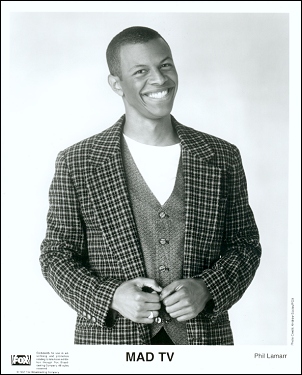
DP: Who have been some people along the way that have given you inspiration?
PL: There are some people I have aspired to be like. Sidney Poitier, Tom Hanks.
I always say my biggest influence, as an actor is Bugs Bunny. The only difference between Sydney, Tom and Bugs is that Bugs is not a single entity.
DP: That's an interesting observation. What do you mean?
PL: "Those Bugs Bunny performances and career was made by a combination of artists. I always tell people, for all the characters people love, I am just their voice.
I am at most a third of the character. Without the writing and the artwork, it is just radio."
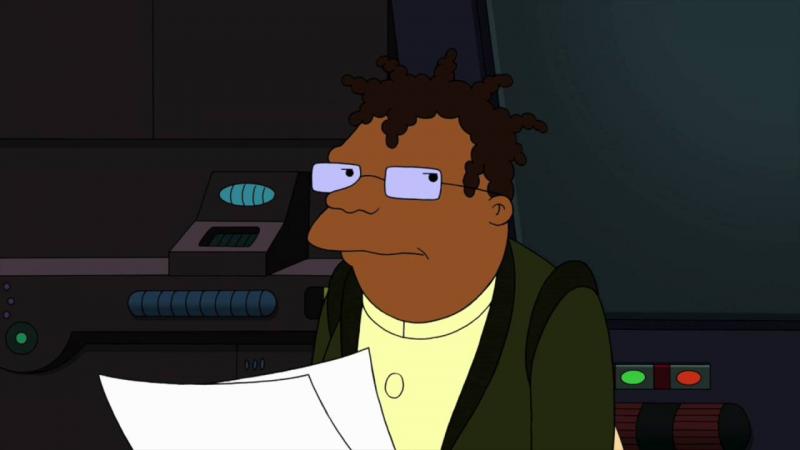 DP: Who else has been an influence to you?
DP: Who else has been an influence to you?
PL: "Carol Dudley who was a casting director that I interned with while I was in college. She gave me a really interesting perspective. She was someone who cared deeply about the craft of acting and casting. She cared a lot and she really worked to make the work that she did good. She brought in the best actors for every part. She was also doing television in the mid 80's. This was not peak TV; this was Jake and the Fatman. There were many times when she would put in the work and the people she was working for didn't care. But she did it anyway. That was inspiring to me. You can aim for greatness, and it doesn't necessarily translate to success. But, that's no excuse for not aiming for it."
"Kelly Garner who was my first voice over agent. He was instrumental. He was starting out his voice over agency the same time I was starting my voice acting career. I got in on the ground floor and he helped me build my career as well."
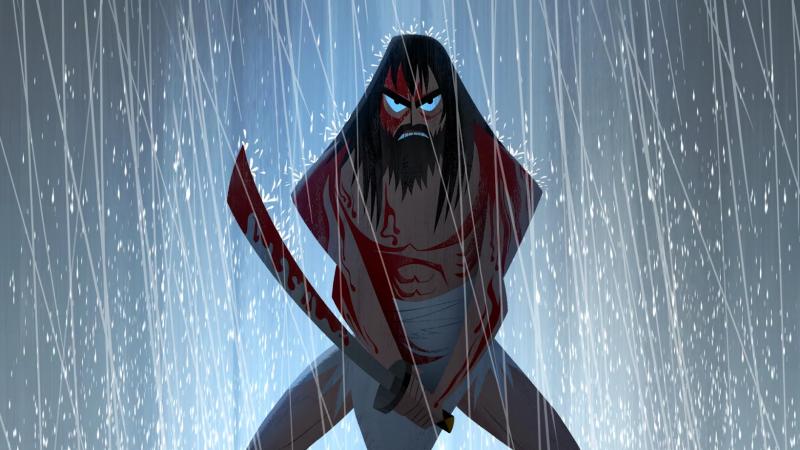
DP - It is a wonderful thing to look back and be thankful of all the people who have helped you along the way. My old acting teacher once told me "Take the craft somewhere it has never been before."
PL: "That's interesting. Its funny you bring that up. My friend Jordan Black is an example of that. Jordan was someone who came through the Groundlings with me and I had directed him. As a black improviser he was often in the minority, if not the only person of color. Over the years he worked with many other black improvisers and began to create a community. When you talked about taking the craft somewhere it had never been before, He brought a group of African American performers that he knew were good and also liked on a personal level. He brought us together to form a group called "The Black Version."
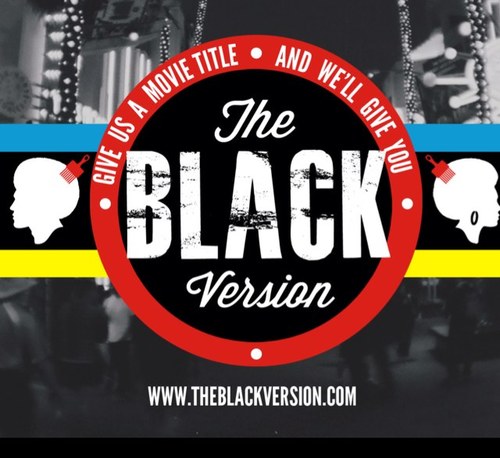
We take a suggestion from the audience of a classic or iconic movie, and then improvise a "black" version of the film. JAWS became "Catfish", "Silence of the Lambs" became "Why you Eatin People." First we thought it would run for like six weeks and we would of played the joke out. But it was the complete opposite; it was one singular concept that spreads forever. Its been running since 2010. It is incredible to play with people with that level of skill every month. Even if you don't feel good that day, worst-case scenario is I get to sit up on stage and watch of them."
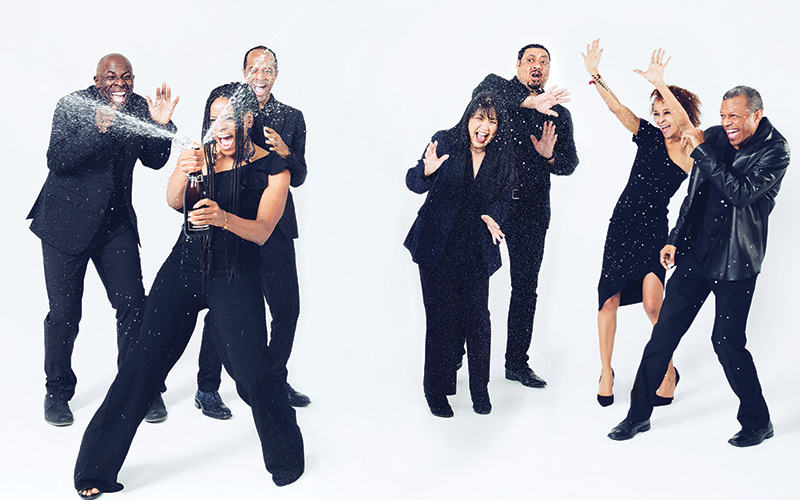
(The Black Version- Cast: Jordan Black, Cedric Yarbrough, Gary Anthony Williams, Daniele Gaither, Phil Lamar and Nyima Funk. Directior Karen Maruyama -Photo Credit: Carlo Ricci)
DP: That trust for me is the best part of doing improv. Even if your up and your struggling. You know it's going to be ok with these talented people you are on stage with.
PL: Exactly, you know that somebody's got your back.

LaMarr's current project is producing an upcoming animated series called Goblins Animated. Based on the book by Tarol Hunt, it is a story of a group of those little ancillary creatures that roam in typical D&D game. Except for in this world they are the adventures not the monsters. LaMarr, Hunt and actor Matt King have combined to bring this to life.
PL - "Matt King and I knew each other from voice over and on camera. He hipped me to the Goblins comic by Tarol Hunt. I used to play D&D back in the day. (He laughs) Like from earlier, when were talking about things back in the day that weren't cool? That was one of them! I started reading the comic and thought, "Oh my God, this is amazing". Not only is it full of this great inside geek humor. But the characters and the way they are drawn are so cool.
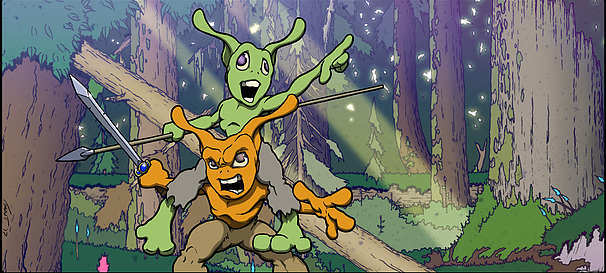
"There is some real emotion in addition to the fun and the incredible world building. His stories would make an amazing animated show. Since its unique with such geeky stuff, we were afraid that if we took it directly to a studio they would not get it. So we crowd funded and got 250k to make a trailer to show the world. The goal is to be able to come in with something and say. "Do you want to be a part of this?" We raised the money and now we are starting the process. Swampy Marsh from Phineas and Ferb has a studio of his own called Surfer Jack. We are working with them to start on the animation pretty soon. Sometime in the next month or two we are going to start getting our voice actors together."
DP: I watched the trailer online and was thrilled to hear a bunch of familiar voice actors.
PL: "Oh my God, we called in favors big time. Jim Cummings, Billy West, Maurice Lamarshe, Matt Mercer. It was great to have incredibly talented people throw in with us and say "Hey, we believe in this and want to help you get this out there."
I'm really excited about taking this to the next step. Getting the cast in there and working with my friends. I have been involved in animation the vast majority of my life at this point. I have never actually taken a cartoon from the start to completion. To be honest I'm little scared. To be doing something new that I've never done before and not sure I know how to do at my age feels weird."
After a check of the clock our time had long since expired. He had an exhibit hall full of adoring fans awaiting him for thank you's and photos. His graciousness and kindness were present as we said our goodbyes. LaMarr is contributing to a continuously growing momentum of quality acting in roles that are not bound to a color or ethnicity. The work he is doing is providing a template for those coming up to lend their voice to a better future.
Here are some links to find out more about Phil LaMarr.
Comments
Join Team BroadwayWorld
Are you an avid theatergoer? We're looking for people like you to share your thoughts and insights with our readers. Team BroadwayWorld members get access to shows to review, conduct interviews with artists, and the opportunity to meet and network with fellow theatre lovers and arts workers.
Interested? Learn more here.
.png)
|
.png)
|
Videos

